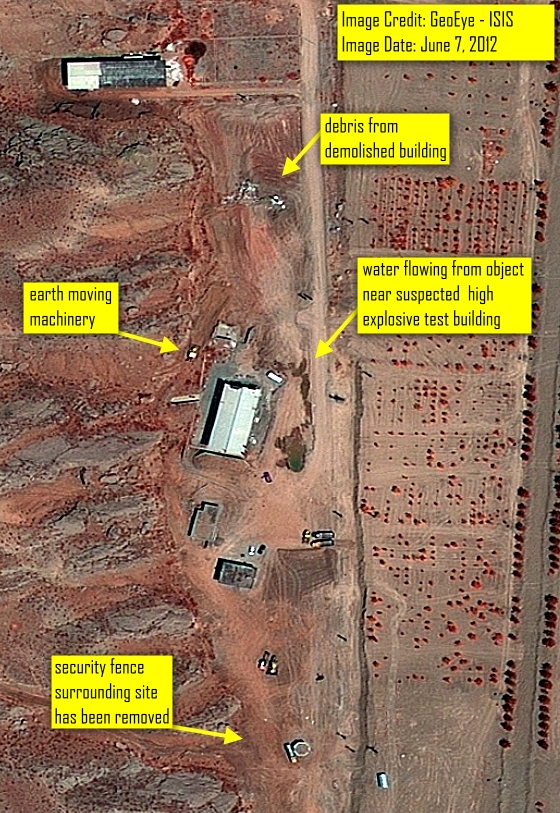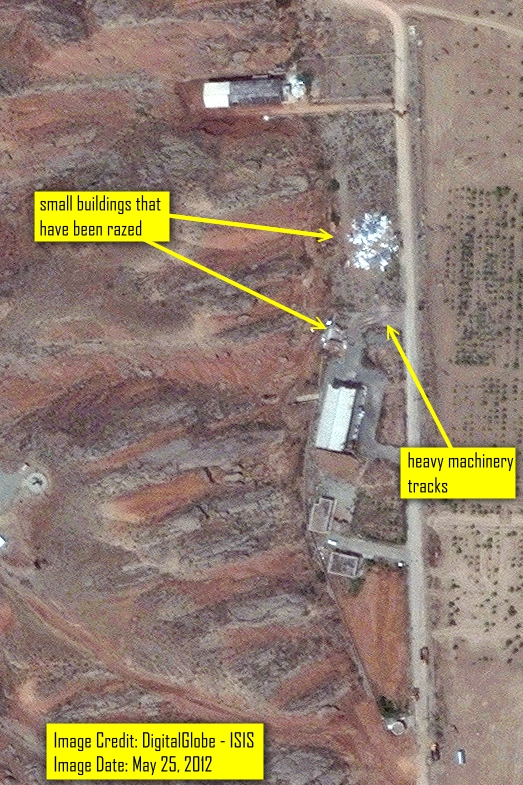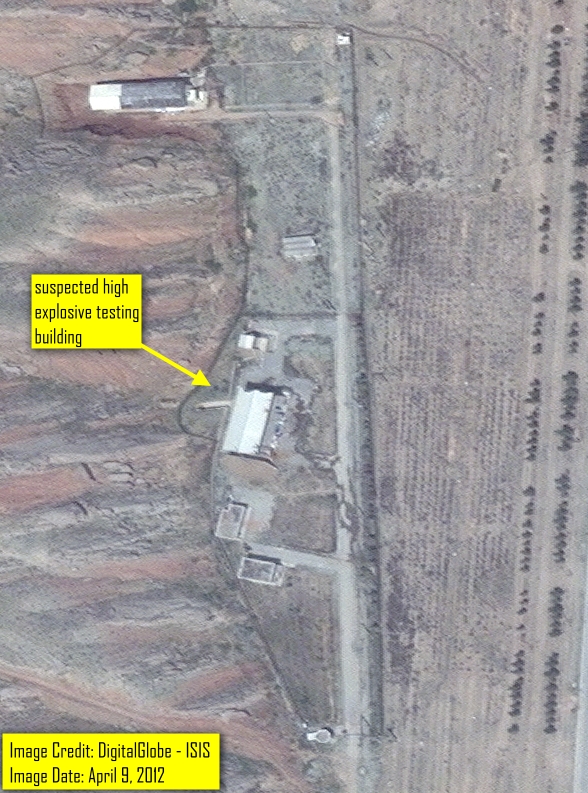Reports
Suspected Clean-Up Activity Continues at Parchin Military Complex: Considerable Dirt Movement Near Suspect Building
by David Albright and Robert Avagyan
June 20, 2012
Recent satellite imagery from GeoEye obtained by ISIS shows what appears to be further sanitization activity at the site in the Parchin military complex where Iran is suspected to have conducted high explosive tests pertinent to the manufacturing of nuclear weapons. The latest satellite imagery from June 7, 2012 shows continued activity at the site where the International Atomic Energy Agency (IAEA) suspects Iran may have conducted high explosive compression related to the development of nuclear weapons. The image shows heavy machinery tracks and earth displacement throughout the site. The debris from one of the razed buildings visible in the imagery from May 25, 2012 has now been consolidated into piles just north of the site of the former building (figure 1). There is evidence of earth moving machinery and excavation activity near the second demolished building north of the building suspected to contain the high explosive testing chamber.
Clearly defined roads that previously led to several of the buildings (figures 2 and 3) are no longer discernible due to machinery traffic or earth removal. The security barrier that previously ran along the perimeter of the site has also been removed. Areas close to the suspect building that contained access roads and vegetation now appear to have been bulldozed or disturbed by machinery (compare figures 1, 2, and 3).
The latest imagery also shows a notable amount of water flow from nearby an object placed next to the alleged high explosive testing building. It is hard to distinguish what the object is or the purpose of the water. The water flows into areas that have seen considerable activity due to heavy machinery traffic or earth removal, activities which appear likely to persist.
Iran’s activities at the Parchin site have raised concerns about Iranian efforts to destroy evidence of possible high explosive tests at this site. The IAEA has asked repeatedly to visit this site, but so far Iran has refused. In the May 25, 2012 IAEA safeguards report on Iran, the IAEA stated that “based on satellite imagery, at this location, where virtually no activity had been observed for a number of years, the buildings of interest to the Agency are now subject to extensive activities that could hamper the Agency’s ability to undertake effective verification.”
On June 4, 2012, IAEA Director General Yukiya Amano said at a news conference in Vienna: “The satellite imagery indicates that these activities include the use of water, demolishing of buildings, removing fences and moving soil.” This recent imagery taken a few days after the statements shows the activities mentioned by the Director General and confirms that the IAEA should be concerned that Iran is attempting to cleanse the site prior to allowing an IAEA visit. Iran should immediately allow the IAEA access to Parchin and explain the significance of these apparent clean-up activities. If Iran has nothing to hide, its activities at this site add a further layer of suspicion and negatively impact efforts to build confidence in the peaceful nature of Iran’s nuclear program, as well as make it less likely the IAEA can arrive at a conclusion about the alleged activities that took place at this site.




 twitter
twitter